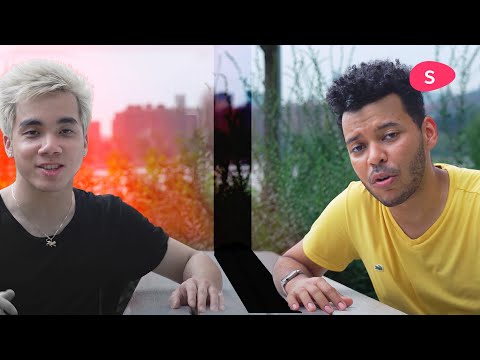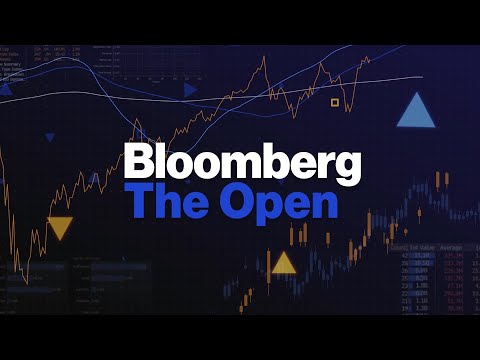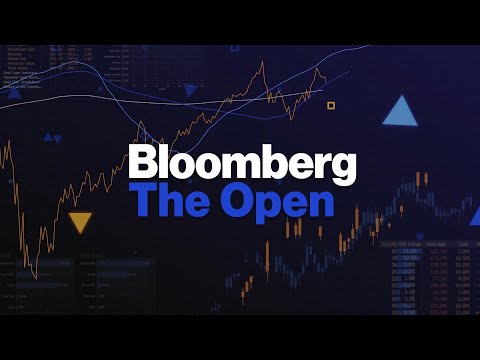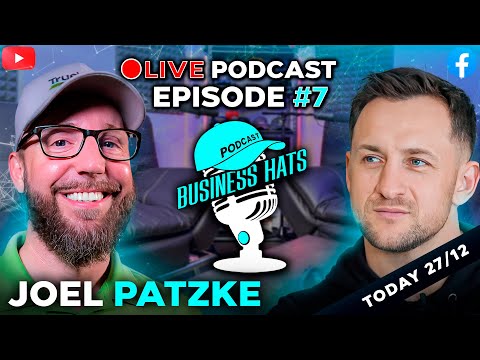The Influencer Economy: a $10 billion business

slowly but surely i've started to accept my place as an influencer my twitter bios is accidental youtuber and i very much believe that is the case because technically as an influencer i cheated my way to your screen this youtube channel was or is a marketing campaign for slide pain up until recently it was an expense for the company it was funded by our marketing budget and don't get me wrong it has done wonders to get slide bean in front of people we have recovered that money invested tenfold but as a self-contained business this channel only really started making money this year we got to buy fancy gear and build ourselves a studio and hire a team and fly places which obviously made us grow faster it would have taken me so much longer to get to 300 000 followers by myself just look at my personal channel as a reference i cheated with slightly i'm a fan of the sams and the johnny's and the christians that just built their communities themselves on their talent and the skin of their teeth the internet was just a megaphone to maximize their skills to get their content in front of people and for the longest time the only way to monetize that talent was putting ads on it or selling and endorsing things but today we have patreon and buy me a coffee platforms where people pay their own money to support other people's craft so i've been wanting to explore this topic for the longest time and joining me to talk about the influencer economy is jake tran so let's explore the influencer economy in today's company forensics [Music] so the concept of influencer did exist before now it may go back to way back in the mid 1700s the royalty was the ultimate influencer there was an english tea brand called wedgewood and they were among the first in shaping what we know today as influencer marketing they created a tea set for king george iii and they were able to advertise that their brand was royalty approved and it worked same thing really you're leveraging someone with influence to endorse a brand advertising right let's move let's move a few hundred years later so mark twain became an endorser on cigar whiskey and pence in the early 1900s coca-cola was one of the first brands to leverage characters for their advertising many people even believe that santa is red because of coca-cola's influence though that's actually not true babe ruth was the first celebrity paid to endorse a brand in 1930 red rock cola now this dread accelerated with the hollywood star system in 1945 and it reached finally its peak in 1965 when color tvs started becoming widely accessible [Music] in the 80s brands like nike were built on the backbone of endorsing celebrities michael jordan and this was reportedly a sponsorship worth two hundred fifty thousand dollars to nike which seemed crazy money at the time they expected to sell three million dollars worth of air jordans in year one and ended up selling 126 million by the end of the 80s 75 of all sports related products were being endorsed by athletes we are so used to seeing press conferences to announce these deals but that wasn't really a standard before that i was excited to to wear unico today your cap is back look at them people still know what an icon is and uh rolex is definitely one of them now i can't wait to play with it myself the new evolution rf97 here we go when i was a kid there was no such thing as an influencer youtuber opportunity famous people were tv personalities athletes the internet wasn't even a thing we were still on 56 kilobits per second connections making money making a living out of the internet was not even a possibility when i was born and when i grew up but you're you're much younger than me man like what what was it like growing up in this day and age i just distinctly remember my parents cancelling cable to save money because we were really poor so i was left with a choice i could either watch the free channels on tv which really really sucks or we have this new thing called youtube so instead of athletes and movie stars i grew up watching like the og youtubers like nigahiga smosh freddie wong chord or digital and i just remember they were like so funny so absurd so entertaining and because they didn't have higher ups that they had the answer to like producers like in the traditional entertainment industry they can make these absurd funkless videos that would never fly on tv but like really related to kids like like me and naturally growing up watching all these youtubers have fun on camera getting to play with the latest tech in terms of tech youtubers getting free stuff that was a big one for me uh and i'll be honest i have seen them have all the fame and attention that was also a big one for me even though a lot of youtubers don't like to admit it uh you know what kid wouldn't aspire to do that social media influencers we don't know how much they get paid but we do know they like to get free stuff the ability for us regular humans to gain a voice came really in the early 2000s with the weblog aka blog a bunch of platforms were released and by 2002 people could start a blog they could write their thoughts and monetize their traffic with tools like blog ads which was something like the equivalent of a google adsense and companies like gizmodo and gawker were also launched in 2002 with a primary business model of blogging weblog's inc was started by jason concatus in 2003 and it was then sold to aol for 25 million dollars suddenly blogs weren't this hobby for geeks and the occasional mom they were companies worth millions of dollars they were startups google acquired blogger and introduced adsense that same year another company came into existence youtube and you want to remember the old youtube tagline it said broadcast yourself the site's called youtube.com lets you upload tag and share your video with the best award that's pretty much all it is to say early youtube creators weren't even creating content to make money or to influence people they just did it out of curiosity to explore this new platform and talk about the stuff that they liked for four years youtube did not have ads on their videos so why would creators still spend all that time and effort making videos maybe there was money to be made there but at the very beginning it was this small special community of creators nobody really understood how big this thing could get welcome to my first video leave comments and subscribe as you grow up as you change as a person the influencers you follow change as well i started following youtubers like linus tech tips marquez brown lee both of them i still follow today both blogs and youtube required technical skills hosting and designing a website writing regular content camera editing and while this was meant for anyone it was still not for everyone that content creation for everyone really began growing with the introduction of fan pages and facebook in 2007 and it really opened the floodgates with the release of instagram in 2010. four years after graduating stanford system and krieger got together to start their own company 18 months later instagram had 30 million users did we just do that instagram was truly for everyone post a photo add a filter you just made something and beautiful and likable online and it's not just the ux instagram came along when smartphones were getting better cameras were evolving so the ability to publish was in the palm of everyone's hands suddenly if your food photos were good you would have a growing following of people that cared about your dog could have a profile of its own if you travel you got a lot of extra attention from strangers and if you're good at finding little spots and angles in cities that people would often miss you'd have people against strangers who followed you and interacted with you and we all did it we did it because it was fun and because it was addictive in a normal setting in a human conversation humans talk about themselves 30 or 40 percent of the time in social media we talk about ourselves about 80 of the time and every time we get a like or a comment or any positive reinforcement there's a part of the brain that lights up according to a study by harvard this is the same part of the brain that ignites when you take an addictive substance dopamine levels rise the brain receives a reward and associates the drug or the activity with positive reinforcement and it's an addictive drug but even more addictive than that is money you smell that what is that the cologne opportunity no money you smell money okay just like that tea brand in the 1700s brands started figuring out that they could leverage the relationships people had with their followers the term influencer wasn't even coined yet but wouldn't it be obvious to leverage this very human channel if someone posts a delicious ramen people are bound to ask where it came from if a photographer publishes a killer shot people are bound to ask what gear they used to shoot it a staggering 92 percent of customers stated that they trust recommendations from friends family and influencers they follow 70 percent of teens trust influencers more than traditional celebrities it's honestly somewhat obvious isn't it if pao is always eating delicious food i trust her to say which stuff is good and which is bad that's a shameless buck to my girlfriend's instagram so this has very deep roots in our subconscious our human brain longs for belonging for being part of a pack we are engineered to connect with other people in our pack and that girl next door is much much more relatable than a celebrity a millionaire in hollywood what's the average for a kardashian post seventy five thousand dollars up to about three hundred thousand dollars prima donna whisking society watching these guys it didn't feel like you were just watching some highly polished character on tv it was like an actual person you got to relate to them as a person and you got to build like this very weird one-on-one relationship with them like as a friend even though you've never met them before for the most part we see ourselves reflected in the people we follow maybe they hail from the same region or maybe they're of similar age or maybe they enjoy doing the same things when this very deep connection is created we look to influencers for guidance on social expectations or simply for self-assurance on what we do even more so we can interact with them they reply to our comments suddenly this looks more like a friendship than a follower right so we are biased into how much trust we put in them if we believe they're experts on their field as we often do the chances of them changing our opinion are much much higher than a stranger or a news outlet or if they're our friends then of course we care about what they have to say about a topic and this isn't necessarily bad why wouldn't you trust that photographer you follow on a camera recommendation why not let yourself be influenced the problem is not all influencers are constructed on talent many are constructed on a much darker human emotion envy people tune into their content because they have a bigger house because they have more money or because they're spending more lavishly we humans long for a window into a lifestyle that's beyond ours it's aspirational and this sudden pool of platforms gave way for people to exploit this even if they have to artificially bump their followers or spend more than they can afford to project this fake image of success instagram these days wants to make money so no you need to have money and it has led to one of the worst effects of social media depression the more time young adults spend on social media the more likely they are to be depressed facebook instagram snapchat actually increase loneliness and depression teenagers and young adults are becoming more anxious and depressed solitary because of the increased use of social media in several studies teenage and young adult users who spend the most time on instagram or facebook and other platforms were shown to have 13 to 66 percent higher rate of reported depression than those who spend the least amount of time in social media and that's probably for somebody else to talk about the whole psychology part of it brands can't necessarily tell them apart or they really don't need to right as long as they sell so it matters little to a brand if you have talent or not it's about your followers and your reach and the idea of making a living by pretending you are rich until you actually are rich faking it until you make it because they're able to monetize it is that where the authenticity does it's just another form of like content of it to look back able to promote products they don't actually use just to make money and the content is totally fake and inauthentic and i think it's a huge problem but let's get out of my poor attempt at psychological analysis again and get back to the business side of it the influencer economy has promised companies spent around 10 billion on influencer marketing in 2020 and it could grow to 15 billion by 2022. more than one billion dollars is spent a year on instagram alone that sounds like a lot and it is but not much when you look at the total marketing spend online which is around 300 billion still that means that influencers are getting good money at least some of them and a growing number of them and while the kendall jenners and the kardashians are certainly getting a bigger chunk of that there is definitely room for concepts like nano or micro influencers who have similar lives to the rest of us and potentially more influence again they're closer to their audiences three times more micro influencers are now used by brands compared to 2016. and of course this empty lifestyle blogger content or simply a bad experience paying for an influencer campaign may have led many people and many brands very skeptical about using influencers again but the numbers actually disagree with that the average earned media value per dollar has increased to 5.78 dollars in 2020.
almost 90 of that is going through instagram we actually should spend more time on instagram in a survey by influencer marketing hub they found 91 of responders thought influencer marketing was a good and effective strategy say what you will about it it's very real and it's very effective so if you're on the internet all the time consuming content entertainment is it logical or fair to pay for that entertainment enter the patreons of the world patreon was founded by samyang and musician jack conte in 2013. content was looking for a way to make a living from his youtube videos because if you know youtube ads it's usually not enough so as of today 6 million patrons pay a monthly subscription to support the creators they follow that's growing about about 1 million people every year that's 187 000 creators with at least one subscriber and an estimated 1 billion dollars every year for payouts to these creators and some of them make tens of thousands of dollars per month this is honestly insane to me but also actually pretty inspiring well there's a decent chunk of that money going to adult content and that's a whole other video in itself the reality is that platforms like patreon let people make a living doing what they love to do as long as they're good at it 62 of first-time patrons on patreon are still sending payments six months later and 51 percent stay for over a year people are willing to support others and to stick around there's a difference here though and perhaps one of the clearest differences most of us youtubers most of the people on patreon consider themselves creators rather than influencers all creators are influencers but not all influencers are creators people pay money to creators they feel inspired by new platforms have come to light such as buy me a copy and even super peer which we're big fans of so i'm seeing this as someone who is not only a creator but who is subscribed to other creators and it's so incredible that you can make a living this way this did not exist 20 years ago heck even 10 years ago i didn't see anything wrong with using my money so that this creator that i like can create more of the content that i enjoy [Music] are you on patreon i have one but i don't promote it so and do you get you have people subscribed yeah not that many though and the reason why is you know in a youtube video you only have so much real estate to do shout outs to get people to do what you want like off uh off of youtube so for me it's the opportunity cost of promoting something like patreon where it's only relevant to people who watch the channel patreon can't sustain and stuff without the channel so i'd rather send people to like a sponsor spot or something that's completely separate from the youtube channel that can thrive on its own so that's my rationale now we of course don't do subscriptions like these because as much as that is changing right now in what this youtube channel is slidebean is still a marketing channel and we're a company we're not an independent creator but there are some really interesting stories of creators that have also developed their own companies kung fam is actually one of my of my favorite examples if you're on youtube you might have come across his channel it was called simple pickup and he and his team seemingly got tired of making this type of viral content and decided to do a starter company called jumpcon which got backed by y combinator jake is doing the same thing johnny and his wife did it marquez the standard tv people released nebula because you are essentially building your distribution nearly on your talent as a creator your talent to tell stories and then building a product around it in my mind the creator and the entrepreneur aren't that different from each other we solve problems and we take risks and we reinvent ourselves the problem is when distribution becomes the product when your company when what you sell is the promise of distribution it's selling people not on a product not in your startup but on how to become you this fake it till you make it lifestyle this lavish lifestyle that gets clicks and views the line also gets blurry when you implement stuff like multi-level marketing tactics it's an incredibly thin line in this day and age and one that we very carefully steer away from and it's one of the reasons why we're very transparent about the stuff that we publish on youtube using this connection using this force for good i think is an incredible possibility that tech has given us influencer marketing is effective because it capitalizes on our most natural tendencies our emotions and our desires influencer marketing is word of mouth at scale where people listen to those they trust and those who can use storytelling effectively when we dive into the psychological details we find that natural emotions fear of missing out care and relationship building all play into this digitally these reactions are all human and hardwired into all of us the digital world has found a way to tap into personal connections and there's a responsibility we accept every single time we put something online thanks a lot for watching guys uh we hope you enjoyed the video we flew jake to new york so he could uh come with us and participate in this video uh we are gonna be a guest in his channel as well so do check that out do go and subscribe to his and of course our channel and we'll see you next week [Music] you
2021-08-06 14:28


